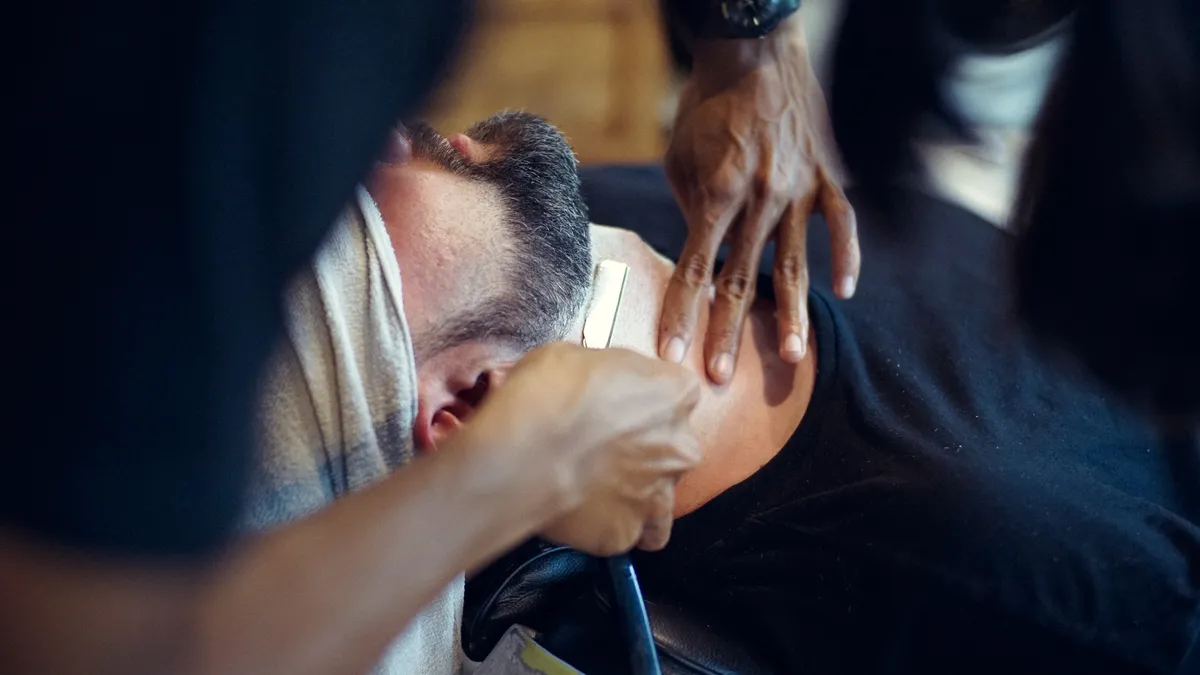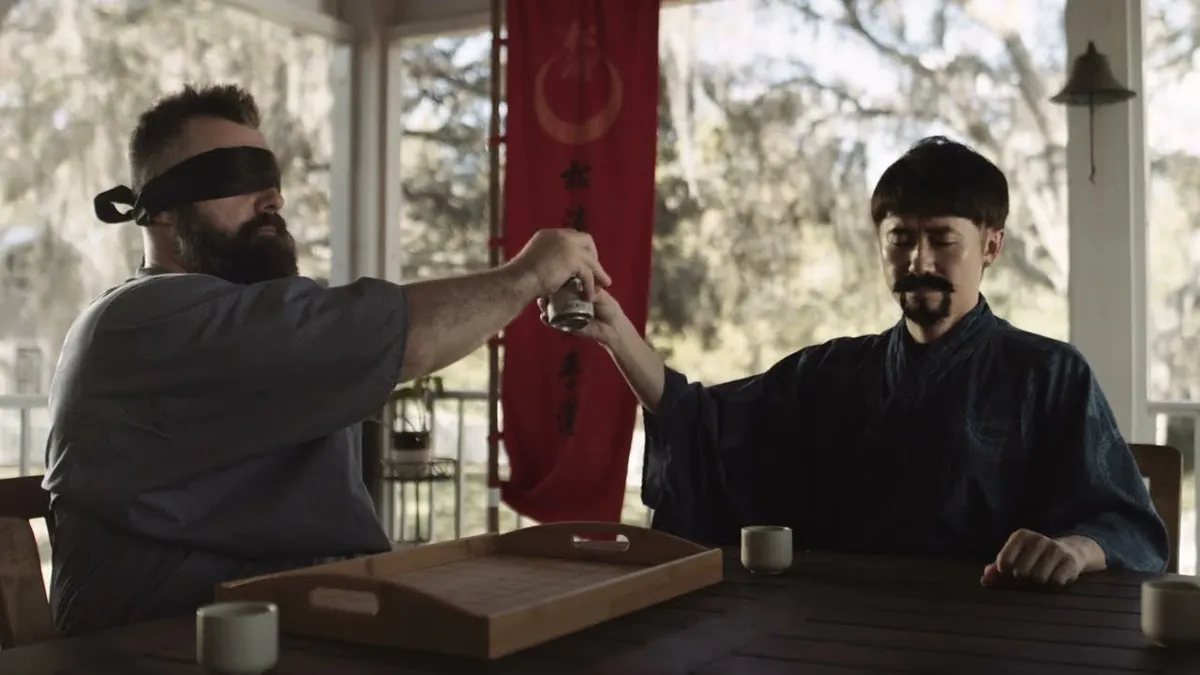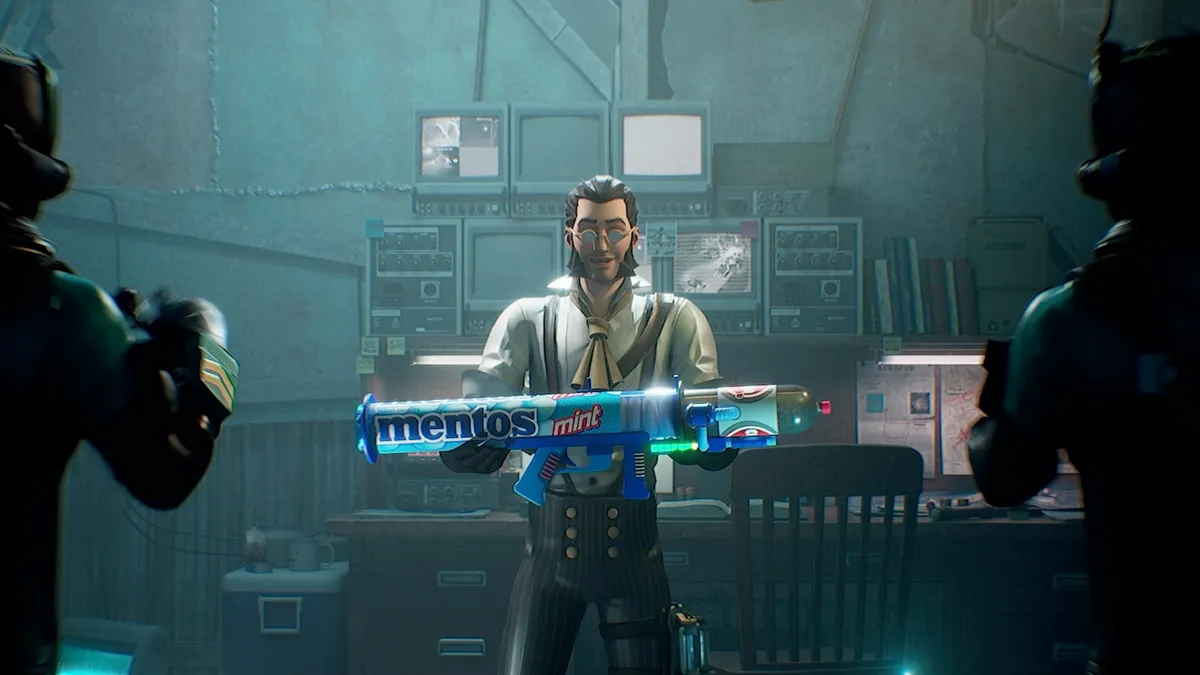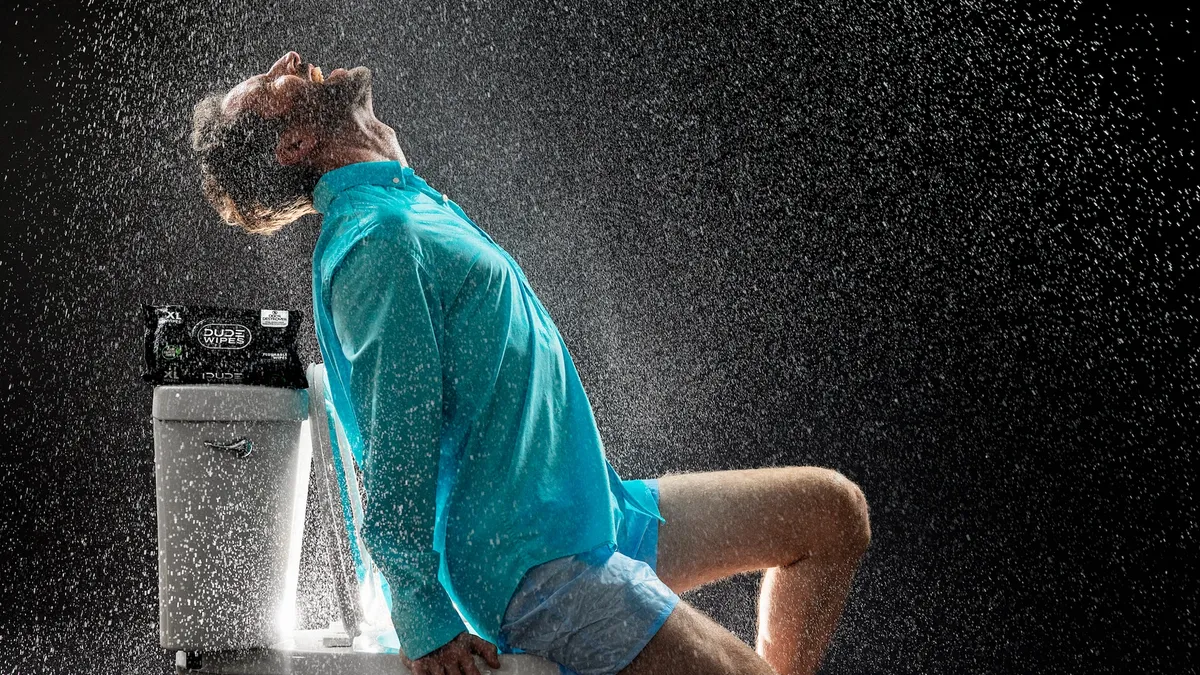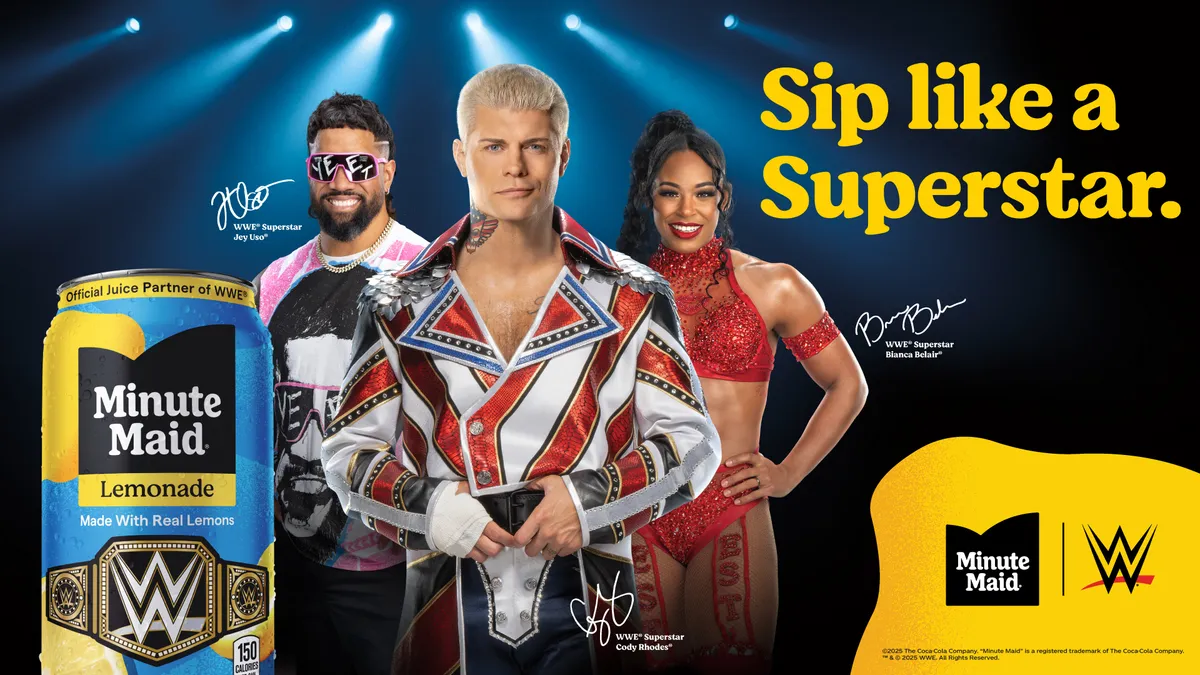It started off with youthful humor in a March 2012 YouTube video featuring charming Dollar Shave Club founder Michael Dubin poking fun at Big Razor’s "$20 razors" with "10 blades" and "vibrating handles." He offered men of America an alternative through Dollar Shave Club's online-only opportunity, where they could get $1 blades shipped to the home for a $2 fee. They would save money and never run out.
"Are our blades any good?" Dubin challenged viewers. "No. Our blades are f ***ing great!" The YouTube video got passed around and around and Dollar Shave Club's website got so many hits it crashed. To date the original spot has been viewed around 25 million times.
A year later, the Harry's brand jumped into the shaving pool and onto the anti-Big Razor bandwagon with its own online subscription program. One of its homespun spots features a cameo of the parents of Harry's co-founder Andy Katz-Mayfield. "Did we conceive Andy to take on Big Razor?" goads Andy’s dad. "Hell Yes!"
Now five years in, the pokes and jabs have continued not only through social media, but also branched onto TV with spots seen frequently against programming on the A&E channel. Harry's went big earlier this year with a national campaign including a Super Bowl commercial.
"We wanted to get in front of consumers and share our brand story in a way that felt right to us," Jeff Raider, Harry’s co-founder told Marketing Dive. This campaign tells viewers "more about why we started Harry's in the first place, and what makes us different from the other brands in the industry — featuring only ourselves and our employees."
Moreover, said Raider, "It's no secret that we operate in a category with tough competition, brands with big voices and even bigger budgets. In the past we struggled a little to navigate that landscape. But we had the realization that when guys get a peek behind the scenes at Harry’s they really feel connected to the company and respond positively."
On the edge
In their current campaigns both Dollar Shave Club and Harry's have kept up the humor while driving home messages of affordably-priced quality products without unnecessary bells and whistles. (Harry's points out it bought a German factory to do so.) Their propositions have been resonating with consumers and sales have been shifting online at the expense of traditional retail.
For the 52 weeks ended May 14, traditional retail sales of razor blades (including women’s) fell 10.5% to $2.13 billion, according to IRI. Even with some online sales, P&G (parent of Gillette), Edgewell Personal Care (parent of Schick) and Bic World, all reported declines in their U.S. shaving businesses in the first calendar quarter of 2017.
Meanwhile, according to Slice Intelligence, online manual blade and razor sales jumped 97% in 2014, grew another 71% in 2015 and rose 31% in 2016. For the month of February 2017, Dollar Shave Club was by far the leader with a 47% market share, followed by Gillette with 23%, Harry’s with 12% and Schick with 6%. Ken Cassar, senior analyst for Slice Intelligence noted that 2013 was the last year Gillette was the dominant online brand of razors. "By January 2014, Dollar Shave Club got ahead of Gillette and it has not looked back since," said Cassar. Pointing to the shift from traditional retail to online, he said "that has a lot to do with the offerings available — the cost and convenience — and it has turned this space upside down."
"We will keep focused on growing our total ecommerce business both through our new Gillette On Demand service and with our retail partners."

Barbara Diecker
P&G spokeswoman
Gillette, Schick and Bic fight back
P&G, which has thrived by introducing premium-priced innovation, just lowered prices on Gillette products an average 12%, with some products as much as 20%. In 2015, it had responded to its online subscription competitors with the Gillette Shave Club, and in May evolved the site into Gillette On Demand, now also offering singular purchases, the ability to reorder with a one-word text and offering every fourth order for free.
"We have a broad campaign live at the moment across digital, social, PR and TV and are actively promoting the program across all our channels," P&G spokeswoman Barbara Diecker told Marketing Dive. The company's online sales continue to keep pace. "Overall, our total ecommerce share has been very stable at around a 22-23% in recent months within the growing online category," according to Diecker. "Gillette is available on many ecommerce retailers, not just Gillette Shave Club, or now Gillette On Demand. We will keep focused on growing our total ecommerce business both through our new Gillette On Demand service and with our retail partners."
P&G issued a "welcome back offer" to restore customers who had tried and were dissatisfied with the performance of the newcomers' blades. Some of these men have been featured in a social media testimonial campaign. But that's not all. P&G has launched several legal challenges to protect Gillette technology. A lawsuit filed against Dollar Shave Club in 2015 "continues to progress through the legal system," P&G's Diecker told Marketing Dive. "As we stated when we filed the lawsuit, we invest significantly in developing the best shaving technology in the world — and so we don't take it lightly when any competitor illegally uses our patented technology. We look forward to a fair resolution ahead."
P&G appealed a disappointing ruling in a lawsuit that charged former P&G employees with sharing Gillette intellectual property with ShaveLogic. However, P&G was pleased with the settlement of a patent infringement lawsuit against Edgewell’s Schick.
"This space is not yet dull. Interesting is what happens to a very high margin category which hasn't been this significantly disrupted in decades."

Ken Cassar
senior analyst at Slice Intelligence
Returning the love, in May Schick introduced the Schick Hydro Connect blade which has been designed to fit nicely into Gillette's Fusion handle and Gillette's Mach3 handle. Analyst Stephen Powers of UBS Securities in a research note called the new Schick blade, "a direct attack on P&G's core franchises" and added that "EPC is confident (it) does not violate existing P&G intellectual property." Simultaneously, Schick unveiled SchickHydro.com, its first venture into the online buying club world. There will be digital support, but no traditional media, according to Powers. EPC has a 15-20% share of the total U.S. men’s shaving market, compared to P&G's 60-plus.
Not to be left out, in March Bic launched the Bic Shave Club in France, its first direct-to-consumer online subscription play and clearly a first line of defense as the newcomers start branching beyond the U.S.
New guys expand
Harry's, available online in the U.S. and Canada, broke the original mold and jumped onto Target's shelves in August. It is now looking for a distribution manager to lead its expansion into the U.K., according to a web job posting. In June, it inked a deal for a new, larger New York headquarters taking a 60,000 square foot space on Varick Street. With the help of a $1.5 million tax credit from the state, it is expected to add 188 jobs.
Dollar Shave Club, acquired by Unilever last summer, has global ambitions and is seeking a director of international according to a posting on job site Indeed.com. Notably it wants someone with both ecommerce and retail experience, suggesting it too could be on store shelves soon.
UBS’s Powers expects the competition to continue. "Looking forward, we do not expect the operating environment to improve near-term."
Slice Intelligence's Cassar agreed.
"This space is not yet dull," said Cassar. "Interesting is what happens to a very high margin category which hasn't been this significantly disrupted in decades."


